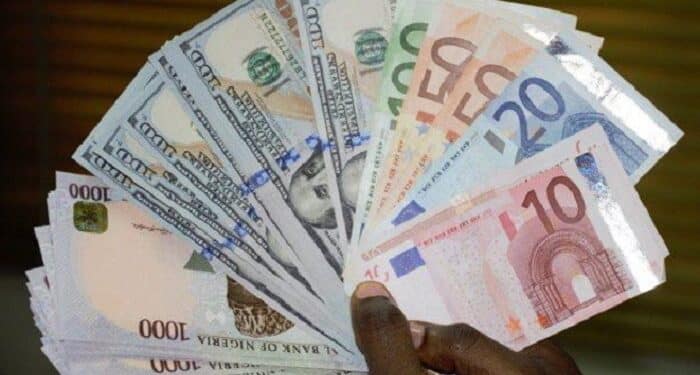While officially, Nigeria’s naira can be said to be doing well this year, down just 4 per cent against a strong US dollar, ahead of the Canadian dollar and the Swiss franc, a Bloomberg report has said it remains one of the worst-performing worldwide.
The report said that is only a small part of the story because the official exchange rate is used only by the government and the well-heeled while ordinary Nigerians are suffocating under a 37 per cent drop on the widely used black market, which most have accepted as a better measure for the local currency.
“That makes it one of the world’s worst-performing currencies, after Ghana’s cedi, which is down nearly 55 per cent this year, and the Sri Lankan Rupee,” Bloomberg said.
The report said its peers include Sierra Leone’s, which is down 36 percent, and the Egyptian pound, which has lost 35 percent, according to Bloomberg.
Africa’s largest economy operates a tightly controlled official rate. Still, in the parallel market, the level of demand for the dollar largely determines the exchange rate of the local currency.
Businesses and ordinary Nigerians are feeling the pain. The Naira’s volatility is the single largest contributor to the surge in inflation, which is ravaging the economy, driving up the prices of virtually everything and causing considerable concern ahead of the year-end festivities.
The report added that rice, the staple, now costs N51,000 a bag, and flight ticket fares are well out of the reach of most people.
Nigeria’s central bank rations dollars at the official rate, cutting off access to many businesses and individuals, which drives demand to the unauthorized black market.
While the naira officially closed at 442.75 to the dollar on Friday, currency traders on the streets of Lagos, Nigeria’s commercial hub, quoted the greenback at N890, according to Umar Salisu, a bureau de change operator who tracks the data and was cited by Bloomberg.
The local unit’s drop in the black market started a day after the central bank announced last week that it will issue redesigned 200-, 500- and 1,000-naira notes from mid-December to mop up excess cash in circulation.
The Abuja-based regulator gave Nigerians until January 31 to exchange the existing bills for new ones, considering that the central bank estimates that as much as N2.7 trillion ($6.1 billion) sits outside bank vaults.
Africa’s most populous country has an average of 4.5 bank branches per 100,000 people, and 45 per cent of adults don’t have a bank account.
The naira’s slump will likely continue in the near term given low oil revenue and rising outflows due to uncertainties associated with February’s presidential election, said Uche Uwaleke, a professor of finance and capital markets at the Nasarawa State University in central Nigeria. The dollar is seen as a haven, he said.
“It’s evident that a lot of currency substitution is going on as many people now see the greenback as a better store of value,” Uwaleke added.











